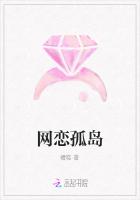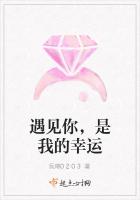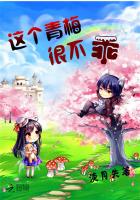The "perfectly lovely" boy who didn't mix with the other boys, who didn't whisper, who never got into trouble, who always had his hair combed, and said, "If you please," used to hurt me. He was the teacher's model boy. All the mothers of the community used to say to their own reprobate offspring, "Why can't you be like Harry?
He'll be President of the United States some day, and you'll be in jail." But Model Harry sat around all his life being a model. I believe Mr. Webster defines a model as a small imitation of the real thing. Harry certainly was a successful model. He became a seedy, sleepy, helpless relic at forty. He was "perfectly lovely" because he hadn't the energy to be anything else. It was the boys who had the hustle and the energy, who occasionally needed bumping--and who got it--who really grew.
I have said little about the girls of the school. Fact was, at that age I didn't pay much attention to them. I regarded them as in the way. But I naturally thought of Clarice, our social pet of the class--our real pretty girl who won the vase in the home paper beauty contest. Clarice went right on remaining in the social spotlight, primping and flirting. She outshone all the rest. But it seemed like she was all out-shine and no in-shine. She mistook popularity for success. The boys voted for her, but did not marry her. Most of the girls who shone with less social luster became the happy homemakers of the community.
But as I looked into the face of Jim Lambert in the picture, my heart warmed at the sight of another great success--a sweet-faced irish lass who became an "old maid." She had worked day by day all these years to support a home and care for her family. She had kept her grace and sweetness thru it all, and the influence of her white, loving life radiated far.
The Boy I Had Envied Frank was the boy I had envied. He had everything--a fine home, a loving father, plenty of money, opportunity and a great career awaiting him. And he was bright and lovable and talented.
Everybody said Frank would make his mark in the world and make the town proud of him.
I was the janitor of the schoolhouse. Some of my classmates will never know how their thoughtless jeers and jokes wounded the sensitive, shabby boy who swept the floors, built the fires and carried in the coal. After commencement my career seemed to end and the careers of Frank and the rest of them seemed to begin. They were going off to college and going to do so many wonderful things.
But the week after commencement I had to go into a printing office, roll up my sleeves and go to work in the "devil's corner" to earn my daily bread. Seemed like it took so much bread!
Many a time as I plugged at the "case" I would think of Frank and wonder why some people had all the good things and I had all the hard things.
How easy it is to see as you look backward. But how hard it is to see when you look forward.
Twenty-one years afterward as I got off the train in the home town, I asked, "Where is he?" We went out to the cemetery, where I stood at a grave and read on the headstone, "Frank."
I had the story of a tragedy--the tragedy of modern unpreparedness.
It was the story of the boy who had every opportunity, but who had all the struggle taken out of his life. He never followed his career, never developed any strength. He disappointed hopes, spent a fortune, broke his father's heart, shocked the community, and finally ended his wasted life with a bullet fired by his own hand.
Why Ben Hur Won It revived the memory of the story of Ben Hur.
Do you remember it? The Jewish boy is torn from his home in disgrace. He is haled into court and tried for a crime he never committed. Ben Hur did not get a fair trial. Nobody can get a fair trial at the hands of this world. That is why the great Judge has said, judge not, for you have not the full evidence in the case. I alone have that.
Then they condemn him. They lead him away to the galleys. They chain him to the bench and to the oar. There follow the days and long years when he pulls on the oar under the lash. Day after day he pulls on the oar. Day after day he writhes under the sting of the lash. Years of the cruel injustice pass. Ben Hur is the helpless victim of a mocking fate.
That seems to be your life and my life. In the kitchen or the office, or wherever we work we seem so often like slaves bound to the oar and pulling under the sting of the lash of necessity. Life seems one futureless round of drudgery. We wonder why. We often look across the street and see somebody who lives a happier life.
That one is chained to no oar. See what a fine time they all have.
Why must we pull on the oar?
How blind we are! We can only see our own oar. We cannot see that they, too, pull on the oar and feel the lash. Most likely they are looking back at us and envying us. For while we envy others, others are envying us.
But look at the chariot race in Antioch. See the thousands in the circus. See Messala, the haughty Roman, and see! Ben Hur from the galleys in the other chariot pitted against him. Down the course dash these twin thunderbolts. The thousands hold their breath. "Who will win?" "The man with the stronger forearms," they whisper.
There comes the crucial moment in the race. See the man with the stronger forearms. They are bands of steel that swell in the forearms of Ben Hur. They swing those flying Arabians into the inner ring. Ben Hur wins the race! Where got the Jew those huge forearms? From the galleys!
Had Ben Hur never pulled on the oar, he never could have won the chariot race.
Sooner or later you and I are to learn that Providence makes no mistakes in the bookkeeping. As we pull on the oar, so often lashed by grim necessity, every honest effort is laid up at compound interest in the bank account of strength. Sooner or later the time comes when we need every ounce. Sooner or later our chariot race is on--when we win the victory, strike the deciding blow, stand while those around us fall--and it is won with the forearms earned in the galleys of life by pulling on the oar.
That is why I thanked God as I stood at the grave of my classmate.
I thanked God for parents who believed in the gospel of struggle, and for the circumstances that compelled it.
I am not an example of success.
But I am a very grateful pupil in the first reader class of The University of Hard Knocks.









![二战风云[图说天下.世界历史系列]](https://cdn.zi5.net/images/book/2020/02/19/155637807.jpg)




